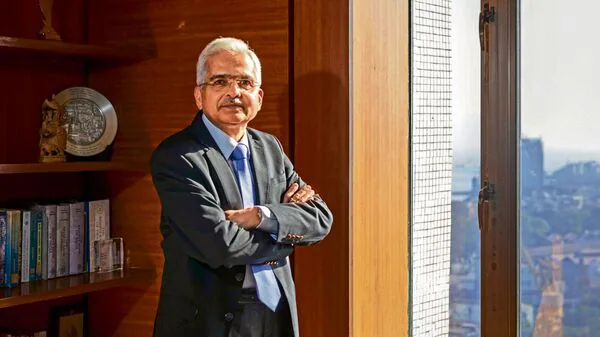
Legal System Needs To Evolve In A Volatile International Economic Scenario, Says Shaktikanta Das
Moderating a panel discussion on legal reforms needed in the country at the Kautilya Economic Conclave in New Delhi, the former Reserve Bank of India governor said legal reforms were needed at a time when multilateral institutions such as the World Trade Organization (WTO) were“not so active”.
“When economies are overcoming new challenges and issues that come up from time to time, it goes without saying that the legal architecture of any country, or for that matter, the legal architecture or the jurisprudence, should also evolve in tune with the requirement of our times, whether it is for individual economies-India or any other country-and also for the international economic system,” he said.
Also Read | De-dollarization debate: Multilateralism can solve the world's financial needsThis comes at a time when the international trade and economic environment is very volatile, he said. Das also said the link between national as well as international economic growth and developments in national and international jurisprudence deepens in such times.
Government reformsHe also listed the recent government reforms to set the foundation for the discussion.
“In recent years, the government has undertaken landmark reforms in the goods and services tax (GST) or the insolvency and bankruptcy code (IBC), or for that matter, the inflation targeting framework, or for that matter the FDI (foreign direct investment) policy, and of course, the criminal law system, which existed in the country since the late 19th century,” he said, seeking responses from panelists in the context of the decline in the international legal architecture around multilateralism.
Also Read | India-UK ties: Dump the old baggage and focus on trade and multilateralism“The WTO has become non-functional. International financial institutions, international institutions related to the functioning of multiple economies, have also become fairly not-so-active,” he said.
Larry Kramer, vice chancellor of the London School of Economics and Political Science, and Harish Salve, a veteran counsel, suggested reforms such as increased use of arbitration and mediation, comprehensive legal education, and greater use of technology in law, to promote ease of doing business.
Salve suggested that, after overhauling the country's criminal laws, there was an urgent need to reform the Civil Procedure Code, which governs all civil disputes in the country.
Quicker dispute resolution, especially in commercial lawsuits, would lead to more investments coming into India, the legal and economic experts on the panel said.
Salve stated that since multilateralism was in decline, India should focus on resolving bilateral investment-related disputes more quickly, so that foreign investors would foster a reputation for providing effective returns on their investments. Investors seek higher returns due to the slow pace of justice delivery, said Salve, a former solicitor general of India and currently the King's Counsel in England and Wales.
Also Read | Why the world's largest bank feels India can thrive despite US trade, visa blowsKramer recommended that a robust alternative dispute resolution, focusing on arbitration and mediation, is required for faster dispute resolution. But, India's arbitration ecosystem has become the first step for litigation, said Salve, referring to the issue of arbitral awards being constantly challenged in courts.
Legal Disclaimer:
MENAFN provides the
information “as is” without warranty of any kind. We do not accept
any responsibility or liability for the accuracy, content, images,
videos, licenses, completeness, legality, or reliability of the information
contained in this article. If you have any complaints or copyright
issues related to this article, kindly contact the provider above.
Most popular stories
Market Research

- New Cryptocurrency Mutuum Finance (MUTM) Raises $15.8M As Phase 6 Reaches 40%
- Noveba Brings Apple Pay To Customers
- Mutuum Finance (MUTM) Approaches Next Phase With 14.3% Price Increase After Raising $16 Million
- Cregis And Kucoin Host Institutional Web3 Forum Discussing Industry Trends And Opportunities
- Primexbt Expands Crypto Futures With 101 New Coins, Delivering Best-In-Class Trading Conditions
- BTCC Exchange Announces Triple Global Workforce Expansion At TOKEN2049 Singapore To Power Web3 Evolution




















Comments
No comment